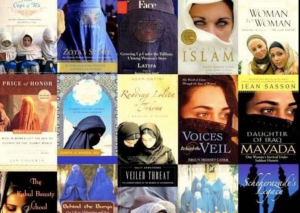A snippet from a recent speech by Jimmy Carter on the place of women in contemporary religious life to the Parliament of the World’s Religions:
It is ironic that women are now welcomed into all major professions and other positions of authority, but are branded as inferior and deprived of the equal right to serve God in positions of religious leadership. The plight of abused women is made more acceptable by the mandated subservience of women by religious leaders.
The truth is that male religious leaders have had – and still have – an option to interpret holy teachings either to exalt or subjugate women. They have, for their own selfish ends, overwhelmingly chosen the latter. Their continuing choice provides the foundation or justification for much of the pervasive persecution and abuse of women throughout the world. This is in clear violation not just of the Universal Declaration of Human Rights but also the teachings of Jesus Christ, the Apostle Paul, Moses and the prophets, Muhammad, and founders of other great religions – all of whom have called for proper and equitable treatment of all the children of God. It is time we had the courage to challenge these views and set a new course that demands equal rights for women and men, girls and boys.
At their most repugnant, the belief that women are inferior human beings in the eyes of God gives excuses to the brutal husband who beats his wife, the soldier who rapes a woman, the employer who has a lower pay scale for women employees, or parents who decide to abort a female embryo. It also costs many millions of girls and women control over their own bodies and lives, and continues to deny them fair and equal access to education, health care, employment, and influence within their own communities.
(HT:Nicholas Kristof, Does Religion Oppress Women?)
I do not always agree with criticisms of organized religion along these lines–not all “paternalistic” values are misogynist, and secular critics are sometimes too quick to universalize values or lifestyles that are very specific to modern and/or Western socio-cultural circumstances–but many of these problems are real. Not that they’re the only ones to struggle with gender inequity or double-standards, but I think this is especially true of Muslim societies today.
Most importantly, I’d argue that viable, balanced solutions that address these problems to the extent they exist without doing damage to traditional values and faith aren’t likely to even emerge much less take root so long as leading scholars continue to pretend that a near absence of women from the halls of power as it were of Islamic scholarly institutions has no affect on the quality of scholarly deliberation on questions of gender.
Such skewed demographics were once unavoidable within Islamic institutions and their downsides far less self-evident, but there is no excuse today.












